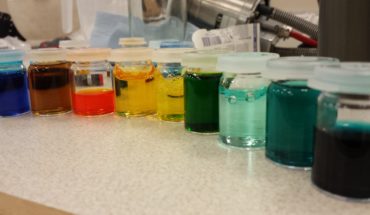The human body is host to around 1.5 kg of microbes. In fact, the number of bacterial cells in your gut far outnumber human cells. This incredible system is known collectively as the microbiome. The study of the human microbiome is a very young field – we did not have the technological breakthroughs to really study this incredibly complex system until the beginning of the 21st century. Furthermore, the significance of this human microbiome to health and disease was not fully understood. Traditionally, research on interactions between humans and microbes has focused on infectious pathogens as opposed to our ‘normal’ microbial flora.
However, mounting evidence shows that the composition of the human microbiome affects physiological processes and is associated with medical problems, such as obesity, allergies, autoimmune disorders and cancer. It is also known that it can be disrupted by the use of antimicrobial drugs or diet. Understanding the human microbiome and how it functions from the molecular to the physiological level is already enabling personalised, microbiome-based therapies to be designed against certain illnesses.
Studying the microbiome is a challenge however, since it is very different in each one of us. There will be a different configuration of microbes depending on our lifestyle, environment, and genetics. Of all the many factors that affect composition and function of the microbiome, nutrition is perhaps the potent. If you change your diet, you will quickly observe a very radical change in your gut bacteria. We are slowly understanding more about how this affects us. The link between the microbiome and obesity is already well established. One important study carried out by scientists at the University of Washington found that if you transplant the microbiome from obese mice into the guts of sterile mice, you can also transfer the trait of obesity. We don’t yet know why this should be the case, but one explanation is that the gut microbes in people who are obese are better able to extract nutrition and energy from the food that they eat.
Our lab in Isreal is focused on asking the question, ‘how do communication channels operate between the microbiome and the human body?’ We are trying to understand the language of how we talk to our microbes. The microbiome is a huge microchemical factory which makes, degrades and moderates thousands of different chemicals that enter our gut.
Many of the small molecules which are created in this chemical factory pass through the gut wall and into the circulation of the human host where they perform important functions. I fact, around 50-80 per cent of the small molecules in your blood are made or modulated by your gut microbes. These can be short chain fatty acids, or essential vitamins which can only be made by the microbiome. For example, several of our key vitamins are derived purely from this source. Without them, we would not be able to live.
And how to create an ideal microbiome is also proving elusive. There is no reliable way to control the microbiome, although we do know that taking probiotics in a specific context may be able to enhance the recovery of the microbiome after a period of taking antibiotics. Antibiotics have proved a great boon to humankind – 100 years ago, the biggest killers of men, women and children were microbial pathogens – but we do pay a price for their use. They disturb the microbiome by wiping out large swathes of the gut flora, and this does seem to make people more prone to disease. It can take months or years for the gut flora to return to normal, and in some cases, it might never come back.
Our level of knowledge is still limited and much more needs to be done before we can understand how the microbiome works and how the different microbes communicate with their host. We are not quite at the beginning, but we have a long way to go before we can reach the end.
- The body’s chemical factory - 8th August 2016







